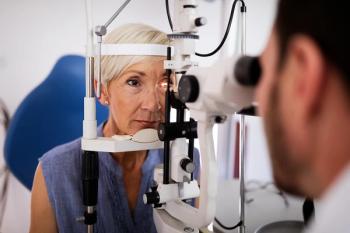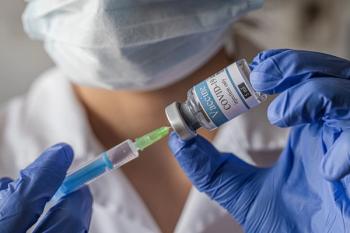
Study confirms supplements slow AMD progression
A decade after the conclusion of the NIH-funded AREDS2 study, researchers found that the AREDS2 formula also reduces the risk of lung cancer.
New research out of the National Eye Institute (NEI) confirms that dietary supplements can decrease the progression of
In a report on a National Institutes of Health (NIH)-funded study published last month in JAMA Ophthalmology, scientists examined 10 years’ worth of data from the Age-Related Eye Disease Studies (
They discovered that the AREDS2 formula—which substituted antioxidants lutein and zeaxanthin for beta-carotene—not only reduces the risk of lung cancer due to beta-carotene, but is also more effective in reducing the risk of AMD progression, compared to the original formula,
According to Emily Chew, MD, director of the NEI’s Division of Epidemiology and Clinical Application, as well as lead author of the study report, because beta-carotene increased the risk of lung cancer for current smokers in two NIH-supported studies, their goal with AREDS2 was to create an equally effective supplement formula that could be used by both smokers and non-smokers.
“This 10-year data confirms that not only is the new formula safer, it’s actually better at slowing AMD progression,” Chew stated in the release.
The original AREDS study—launched in 1996—found that a formula of dietary supplements (500 mg Vitamin C, 400 international units vitamin E, 2 mg copper, 80 mg zinc, and 15 mg beta-carotene) could significantly slow the progression of AMD from moderate to late disease, according to the release.
Despite this, two parallel studies found that the risk of lung cancer in individuals who took beta-carotene and smoked was significantly higher than anticipated.
The AREDS2 trial was launched in 2006 as a 5-year study comparing the beta-carotene formulation to formulations with 10 mg of lutein and 2 mg zeaxanthin.
Similar to beta-carotene, these antioxidants have activity in the retina. Only patients who had either never smoked or had quit smoking were given the beta-carotene formulation.
At the end of the study, it was determined that the antioxidants did not increase the risk for lung cancer. Further, researchers concluded that the beta-carotene formulation could reduce the risk of AMD progression by an approximate 26%.
Upon the study’s completion, participants were offered the final formation from the study that included lutein and zeaxanthin (instead of beta-carotene).
The new report includes findings from researchers’ follow-up with 3,883 participants of the original 4,203 participants from the AREDS2 study in 2011, 5 years after its conclusion. They took note of whether participants’ AMD has progressed to late disease as well as if they had a lung cancer diagnosis, according to the release.
Despite the fact that all patients had switched to the antioxidant-containing formula following the end of the AREDS study, results from the follow-up study continued to reveal that beta-carotene increased the risk of lung cancer for individuals who had never smoked by almost double.
For those patients who received the lutein/zeaxanthin formulation, there was no increased risk for lung cancer.
Further, researchers reported that after 10 years, the participant group originally assigned to receive lutein/zeaxanthin had an additional 20% reduced risk of progression to late AMD compared to those originally assigned to receive beta-carotene.
Chew stated: ““These results confirmed that switching our formula from beta-carotene to lutein and zeaxanthin was the right choice.”
Newsletter
Want more insights like this? Subscribe to Optometry Times and get clinical pearls and practice tips delivered straight to your inbox.




























